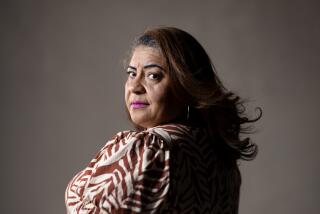A Novel Strategy: Shut Up and Learn
- Share via
I knew something was missing from Superintendent Ruben Zacarias’ seven-point plan for improving Los Angeles public schools, but I couldn’t quite put my finger on what. Then I read psychologist John Gottman’s study on successful marriages and the last puzzle piece fell into place.
Researchers at the University of Washington found that in order for a marriage to last, husbands should simply do what their wives say. Similarly, in order for test scores to improve in the Los Angeles Unified School District, students are going to have to start doing what their teachers say.
In both marriage counseling and education, “active listening” has been recommended as the key to effective communication. Husbands and wives, teachers and students have been trained to paraphrase the other person’s concerns, “What I think I hear you saying is . . . .” But the University of Washington researchers found that couples who made use of such artificial language to resolve disagreements were no more likely to stay together than couples who did not. They discovered that the marriages that managed to survive all had one thing in common: The husband was willing to give in to the wife.
As a teacher, I can say unequivocally that the students who learn most in my class are those who are willing to give in to me, their teacher. This is not to say that students should be passive lambs with no opinions of their own or that student voices shouldn’t be sought out and made a part of classroom instruction. It does mean that by and large, compliant students learn more than defiant ones.
Nowhere in Zacarias’ design is there mention of how he plans to take back control of secondary classrooms from disruptive students. Improving the quality of the lessons is one answer, having textbooks to put in students’ hands is another. But students have a responsibility here, too. Thirty-seven percent of all new teachers leave the profession within the first three years. In most cases, their departure is not a move toward better pay but rather a direct result of unruly students having made hash of their dreams. Young teachers are idealists. They come to the public schools to make a difference and give back to a society that has been good to them. But too often, before they can find their feet and develop strategies for classroom management, a few uncontrollable kids have driven them away.
Amazing things can happen when students listen to their teachers. I am reminded of Arash, a 10th-grade student whose early essays were peppered with apostrophe errors. He used the punctuation mark at will and with great abandon. I handed him back his paper with the mistakes marked but no grade. I explained to him what he was doing wrong and told him to hand the essay back to me corrected. He didn’t argue. He didn’t feel I was being unfair or disrespectful of his ideas. I would like to believe that he knew I cared so much for those ideas that I refused to accept them in such a sorry state.
The fact that I should remember such a small incident and its happy ending with fondness suggests how rare such moments are and how refreshing it is for a teacher to work with students willing to do as she says. Many things that must be learned in school are not negotiable. Suggesting that they are only sets students up for a rude awakening after graduation. If Zacarias wants to improve teaching and learning, he needs to let students know in no uncertain terms that they are going to have to start doing what their teachers say.
More to Read
Sign up for Essential California
The most important California stories and recommendations in your inbox every morning.
You may occasionally receive promotional content from the Los Angeles Times.













